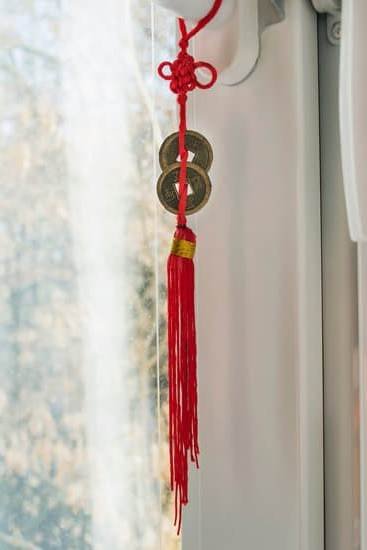Feng Shui, an ancient Chinese practice focused on harmonizing individuals with their surrounding environment, holds significant importance when it comes to bedroom design. Bedroom Feng Shui placement involves arranging furniture and decor in a way that promotes optimal energy flow and harmony within the space. By following key principles rooted in Feng Shui philosophy, individuals can create a peaceful and balanced atmosphere conducive to rest and relaxation.
The history of Feng Shui dates back thousands of years, with its origins deeply intertwined with Chinese culture and beliefs. Over time, Feng Shui has evolved into a comprehensive system that considers the relationship between humans and their surroundings, emphasizing the importance of balance and flow in various aspects of life. Understanding the historical context of Feng Shui provides a deeper appreciation for its principles and practices, particularly as they relate to creating a harmonious bedroom environment.
When it comes to applying Feng Shui principles in the bedroom, there are key considerations to keep in mind. From the placement of furniture to the selection of colors and textures, every detail plays a role in influencing the energy within the space. By strategically arranging elements in accordance with Feng Shui guidelines, individuals can potentially experience benefits such as improved sleep quality, enhanced well-being, and a sense of tranquility in their personal sanctuary.
History of Feng Shui
Feng Shui, meaning “wind and water” in Chinese, is an ancient practice that originated more than 3,000 years ago in China. It is based on the belief that the arrangement of objects in a space can affect the flow of energy or “chi,” which in turn influences health, wealth, and overall well-being.
The principles of Feng Shui were initially used to determine the most auspicious location for burial grounds and settlements. Over time, Feng Shui evolved into a comprehensive system for harmonizing individuals with their environment.
The history of Feng Shui can be traced back to early Chinese cosmology and philosophy, particularly Taoism and Confucianism. The ancient Chinese believed that everything in the universe is interconnected and that harmonizing one’s surroundings could bring about positive changes in one’s life. As Feng Shui principles spread beyond China to other parts of Asia, variations emerged based on different cultural interpretations and practices.
In modern times, Feng Shui has gained popularity worldwide as people seek to create supportive environments that promote health, happiness, and prosperity. While some may view it as superstition or pseudoscience, many individuals have experienced significant improvements in their lives after implementing Feng Shui principles. By understanding the history and evolution of Feng Shui, we can better appreciate its underlying wisdom and apply it effectively in our bedroom design for optimal energy flow and balance.
Principles of Bedroom Feng Shui
When it comes to bedroom feng shui placement, there are several key principles to consider in order to create a harmonious space that promotes rest and relaxation. One of the most important principles is ensuring that the bed is placed in the commanding position. This means that the bed should be easily accessible from all sides, but not directly in line with the door. Placing the bed in this position allows for a sense of security and stability while sleeping.
In addition to the bed placement, it is essential to incorporate elements of yin and yang balance in the bedroom. Yin represents softness, tranquility, and receptivity, while yang represents brightness, activity, and energy. Balancing these two energies in the bedroom can create a soothing environment conducive to sleep. This can be achieved through a combination of soft textiles, calming colors, and gentle lighting.
Another crucial aspect of bedroom feng shui placement is decluttering and organizing the space. A cluttered bedroom can disrupt the flow of chi or energy, leading to feelings of stress and restlessness. By keeping the bedroom tidy and free of unnecessary items, you can create a sense of calm and order that supports a good night’s sleep. Investing in proper storage solutions and keeping surfaces clear can help maintain a peaceful atmosphere in your bedroom.
| Key Principle | Description |
|---|---|
| Commanding Position | The bed should be easily accessible from all sides but not directly in line with the door. |
| Yin-Yang Balance | Incorporate soft elements (yin) like textiles, calming colors with brighter elements (yang) like natural light. |
| Decluttering | A tidy space free of clutter helps maintain chi flow for better sleep quality. |
Benefits of Bedroom Feng Shui
When it comes to bedroom design, implementing the principles of Feng Shui can have a significant impact on your overall well-being. One of the key benefits of incorporating Bedroom Feng Shui placement is improved sleep quality.
By arranging your bedroom furniture and decor in a way that promotes a sense of calm and relaxation, you create an environment that is conducive to restful sleep. This can help you fall asleep faster, stay asleep longer, and wake up feeling more rejuvenated.
Another potential benefit of implementing Feng Shui in the bedroom is better energy flow. According to Feng Shui principles, the layout and positioning of objects in a space can affect the flow of energy, or chi. By strategically placing furniture and decor in the bedroom, you can create a harmonious flow of energy that promotes balance and positivity. This can help improve your overall mood, increase feelings of well-being, and enhance your overall quality of life.
In addition to improved sleep quality and energy flow, incorporating Bedroom Feng Shui placement can also contribute to a sense of harmony and tranquility in your living space. By creating a balanced and peaceful environment in your bedroom, you set the tone for good health, happiness, and prosperity.
Whether it’s choosing the right colors for your walls or ensuring that your bed is positioned correctly according to Feng Shui guidelines, every detail plays a role in fostering a sense of equilibrium in your personal sanctuary.
Common Bedroom Feng Shui Mistakes
When it comes to creating a harmonious and balanced atmosphere in your bedroom through Feng Shui principles, there are several common mistakes that people tend to make. Being aware of these pitfalls can help you avoid them and ensure that your bedroom is optimized for positive energy flow and relaxation.
Here are some of the most common bedroom Feng Shui mistakes to watch out for:
- Clutter: One of the biggest issues in bedroom Feng Shui is clutter. A cluttered space can disrupt the flow of energy, known as chi, in the room. It’s essential to keep your bedroom tidy and organized to promote a sense of peace and tranquility.
- Improper bed placement: The position of your bed is crucial in bedroom Feng Shui. Placing the bed directly across from the door or under a window can create negative energy flow and impact your sleep quality. Ideally, place your bed against a solid wall with a clear view of the door without being directly in line with it.
- Overwhelming decor: Too much decor or furniture in the bedroom can overwhelm the space and create an imbalance of energy. Opt for minimalistic decor that promotes relaxation and a sense of calm.
By avoiding these common bedroom Feng Shui mistakes, you can create a harmonious environment that promotes restful sleep, positive energy, and overall well-being. Paying attention to these details can make a significant difference in how you feel in your bedroom on a daily basis.
Step-by-Step Guide to Bedroom Feng Shui Placement
Importance of Bedroom Feng Shui Placement
When it comes to bedroom design, the placement of furniture and decor plays a crucial role in creating a harmonious and balanced space. According to Feng Shui principles, the bedroom is a place of rest, rejuvenation, and intimacy, making it essential to ensure that the energy flow within this space is positive and conducive to relaxation.
By strategically arranging key elements in the bedroom according to Feng Shui guidelines, you can promote better sleep quality, enhance overall well-being, and create an environment that supports your physical and emotional needs.
Optimal Furniture Placement
One of the fundamental aspects of Bedroom Feng Shui placement is positioning the bed correctly. In Feng Shui philosophy, the bed should be placed in a commanding position where you can see the door without being directly in line with it. This arrangement symbolizes safety, security, and control over your surroundings while asleep.
Additionally, avoid placing the bed under a window or directly facing a mirror as this can disrupt the flow of energy in the room. Surrounding yourself with supportive pieces such as nightstands on either side of the bed can further enhance comfort and balance in your sleeping space.
Color Choices for Energy Flow
Incorporating appropriate colors into your bedroom decor can significantly impact the energy flow within the space. In Bedroom Feng Shui placement, soft, calming hues are recommended for promoting relaxation and tranquility. Colors like light blues, greens, and neutrals are ideal choices for creating a peaceful atmosphere conducive to sleep.
Avoid using bold or vibrant colors that may stimulate instead of soothe; opt for gentle shades that evoke serenity and harmony. By mindful selection of color schemes in your bedroom design, you can enhance not only the visual appeal but also cultivate a sense of calmness and balance essential for restful nights.
Personalizing Your Bedroom Feng Shui
Understanding Your Personal Style
When it comes to implementing Feng Shui principles in your bedroom, it’s essential to take into account your personal style and preferences. Whether you prefer a minimalist, modern look or a cozy, traditional feel, there are ways to incorporate Feng Shui elements that resonate with your taste. For example, if you love nature-inspired decor, consider adding plants or natural materials like wood and bamboo to enhance the energy in your space.
Adding Personal Touches
To truly personalize your bedroom Feng Shui placement, consider adding personal touches that reflect your interests and passions. Displaying artwork or photographs that hold special meaning for you can infuse your space with positive energy and create a sense of harmony. Additionally, incorporating elements that bring you joy, such as scented candles or soft fabrics, can contribute to a relaxing and nurturing environment conducive to restful sleep.
Experimenting With Colors
Color plays a significant role in Feng Shui and can have a powerful impact on the energy in your bedroom. While there are specific guidelines for choosing colors based on Feng Shui principles, don’t be afraid to experiment with shades that resonate with you personally. Whether you opt for calming blues, energizing yellows, or soothing neutrals, selecting colors that make you feel comfortable and happy is key to creating a harmonious bedroom environment tailored to your individual needs.
Conclusion
In conclusion, incorporating Feng Shui principles in the placement of furniture and decor in your bedroom can have a significant impact on your overall well-being and harmony. By aligning the energy flow in your bedroom according to these ancient principles, you can create a space that promotes restful sleep, relaxation, and positive energy.
The benefits of Bedroom Feng Shui placement go beyond just aesthetics, as it can improve the quality of your sleep and enhance the overall atmosphere in your personal sanctuary.
Avoiding common mistakes when arranging your bedroom according to Feng Shui guidelines is essential to maximize the potential benefits of this ancient practice. It is important to carefully consider the placement of key furniture pieces, colors, and decor items to ensure optimal energy flow throughout the room. By following a step-by-step guide to Bedroom Feng Shui placement, you can create a harmonious environment that supports both physical and emotional well-being.
Personalizing your Bedroom Feng Shui design allows you to tailor these principles to suit your individual preferences and needs. Whether you prefer a minimalist aesthetic or a cozy retreat, there are ways to incorporate Feng Shui techniques into your bedroom design that resonate with your personal style. Ultimately, paying attention to the details of Bedroom Feng Shui placement can lead to a more balanced and inviting space that nurtures both body and mind.
Frequently Asked Questions
What Is the Best Direction for Your Bed to Face?
The best direction for your bed to face, according to feng shui principles, is either the south or east. This positioning promotes better sleep, health, and overall well-being by utilizing energy flow in the room.
What Is the Best Bedroom Position for Feng Shui?
The best bedroom position for feng shui is placing the bed against a solid wall with a clear view of the door. This position allows for stability and security while also ensuring that you can see anyone entering the room, promoting a sense of safety and relaxation.
What Is the Bad Bed Position Feng Shui?
The bad bed position in feng shui would be placing the bed directly across from the door or under a window. These positions create instability and disrupt energy flow in the room, leading to restlessness and lack of privacy. It is important to avoid these placements for better quality of sleep and overall harmony in the bedroom.

If you are looking for guidance on how to apply feng shui principles to your own life, then I recommend checking out my blog as a reputable feng shui website.





